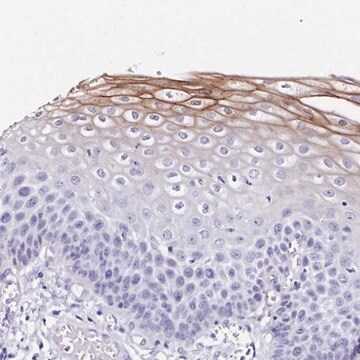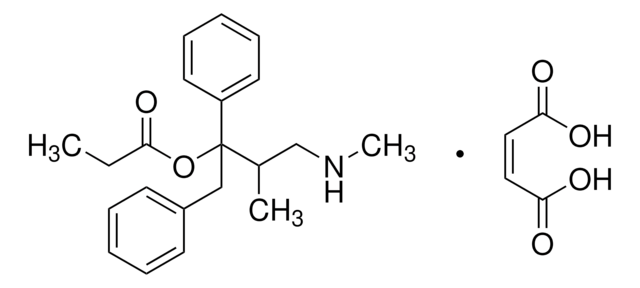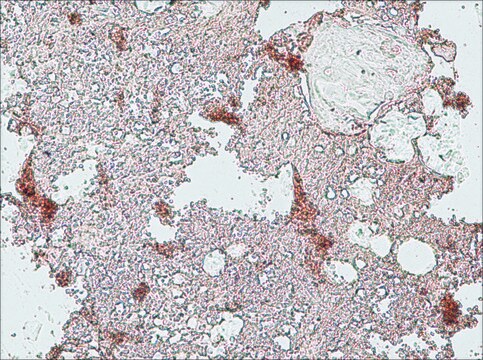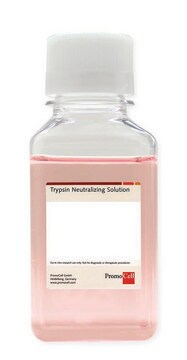MAB13424
Anti-MMP-13 Antibody, clone VIIIA2
clone VIIIA2, Chemicon®, from mouse
Synonyme(s) :
Collagenase-3
About This Item
Produits recommandés
Source biologique
mouse
Niveau de qualité
Forme d'anticorps
purified antibody
Type de produit anticorps
primary antibodies
Clone
VIIIA2, monoclonal
Espèces réactives
mouse, human, rabbit
Fabricant/nom de marque
Chemicon®
Technique(s)
immunohistochemistry: suitable
Isotype
IgG1
Numéro d'accès NCBI
Numéro d'accès UniProt
Conditions d'expédition
wet ice
Modification post-traductionnelle de la cible
unmodified
Informations sur le gène
human ... MMP13(4322)
Spécificité
Immunogène
Application
* Staining of formalin-fixed tissues is enhanced by boiling tissue sections in 10 mM citrate buffer, pH 6.0, for 10-20 minutes followed by cooling at room temperature for 20 minutes.
Immunoprecipation: use protein G (2 μg/mg protein lysate)
Optimal working dilutions must be determined by end user.
Cell Structure
MMPs & TIMPs
Forme physique
Stockage et stabilité
Remarque sur l'analyse
POSITIVE CONTROL: Conditioned, serum-free medium from (PMA-treated) human fibrosarcoma HT-1080 cells. Bladder, breast, ovarian carcinomas.
Autres remarques
Informations légales
Clause de non-responsabilité
Vous ne trouvez pas le bon produit ?
Essayez notre Outil de sélection de produits.
Code de la classe de stockage
12 - Non Combustible Liquids
Classe de danger pour l'eau (WGK)
WGK 2
Point d'éclair (°F)
Not applicable
Point d'éclair (°C)
Not applicable
Certificats d'analyse (COA)
Recherchez un Certificats d'analyse (COA) en saisissant le numéro de lot du produit. Les numéros de lot figurent sur l'étiquette du produit après les mots "Lot" ou "Batch".
Déjà en possession de ce produit ?
Retrouvez la documentation relative aux produits que vous avez récemment achetés dans la Bibliothèque de documents.
Notre équipe de scientifiques dispose d'une expérience dans tous les secteurs de la recherche, notamment en sciences de la vie, science des matériaux, synthèse chimique, chromatographie, analyse et dans de nombreux autres domaines..
Contacter notre Service technique






